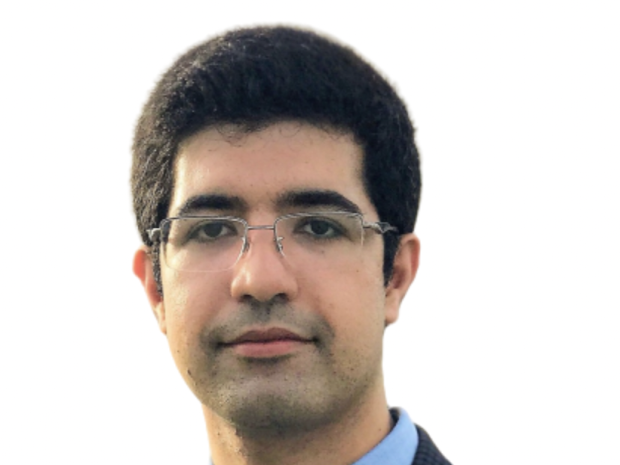Energy Autonomous Integrated SoCs: Towards Next-Generation Ubiquitous Connectivity and Sensing

Speaker:
Hamed Rahmani
IBM T.J. Research Center
Title:
"Energy Autonomous Integrated SoCs: Towards Next-Generation Ubiquitous Connectivity and Sensing"
Abstract:
System-on-chip (SoC) solutions have the potential to enable low-cost, eco-friendly, and scalable communication/sensing platforms for the next generation of wireless networks. The evolution of wireless technology to 5G and beyond will increase the number of connected devices at an unprecedented rate. On the other hand, the existing electronics/optics do not meet the performance requirements of future technologies, e.g., energy efficiency, power handling, bandwidth, and batteryless operation. In this talk, I highlight how custom silicon Integrated Circuits (ICs) can build the foundation for energy-autonomous, reconfigurable, and scalable SoC platforms from microwave to millimeter-wave (mm-Wave)/sub-terahertz (THz) frequencies. To this end, I present integrated solutions for 1- Low-power ubiquitous medical and IoT sensing. 2- High-power signal generation at sub-6GHz and mmWave frequency range, and 3- High-speed and energy-efficient wireline connectivity. First, I introduce batteryless wireless SoCs capable of harvesting energy from ambient and dedicated energy sources. I adopt an antenna-to-system integration approach and address the challenges of next-generation wirelessly powered integrated systems. For the first time, I present a fully integrated high-performance data transceiver with a power harvesting platform under severe power constraints and small form factors offering a broad scope of applications, including medical implants, point-of-care diagnostic, ubiquitous sensing, and localization. I provide my vision for the future of integrated electronics/optics beyond the limits of SoCs that will transform the next decade of connectivity and high-performance computing and conclude this talk.
Bio:
Hamed Rahmani received a Ph.D. degree from the University of California Los Angeles (UCLA) in 2020 and an M.Sc. degree from Rice University in 2017, both in electrical and computer engineering. He completed his B.Sc. degree at the Sharif University of Technology in Tehran, Iran in Electrical Engineering in 2014.
He has been with IBM T. J. Research Center in Yorktown Heights, NY since 2022 and is currently a Research Staff Member working on research projects investigating Mixed-Signal CMOS circuits for high-speed electrical and optical data communication. He is also an Adjunct Professor at Columbia University in New York, NY, where he has taught graduate-level courses in analog and RF circuit design. He was also a visiting lecturer at the ECE department of Princeton University in the Fall of 2022 where he taught a graduate-level course on RFIC design. From 2020 to 2022, He was a senior RFIC design engineer at Qualcomm Inc., Boxborough, MA where he focused on advanced 5G transmitters for cellular applications and RF front-end designs. His Ph.D. thesis was focused on wirelessly powered solutions based on low-power integrated systems and circuits for biomedical applications and IoT sensors. His research focus includes high-speed mm-wave wireline and wireless integrated circuits and low-power integrated system-on-chip solutions for biomedical implants and IoT sensors.
Dr. Rahmani received several awards and fellowships including the IEEE MTT-S Graduate Fellowship for medical applications and the Texas Instruments Distinguished fellowship. He serves on the technical committee for the International Microwave Symposium (IMS) 2022. Also, he is a member of "MTT-26: RFID, wireless sensors and IoT" and an affiliate member of " MTT-25: wireless power transfer and energy conversion" technical committees of the IEEE Microwave Theory and Techniques Society.

